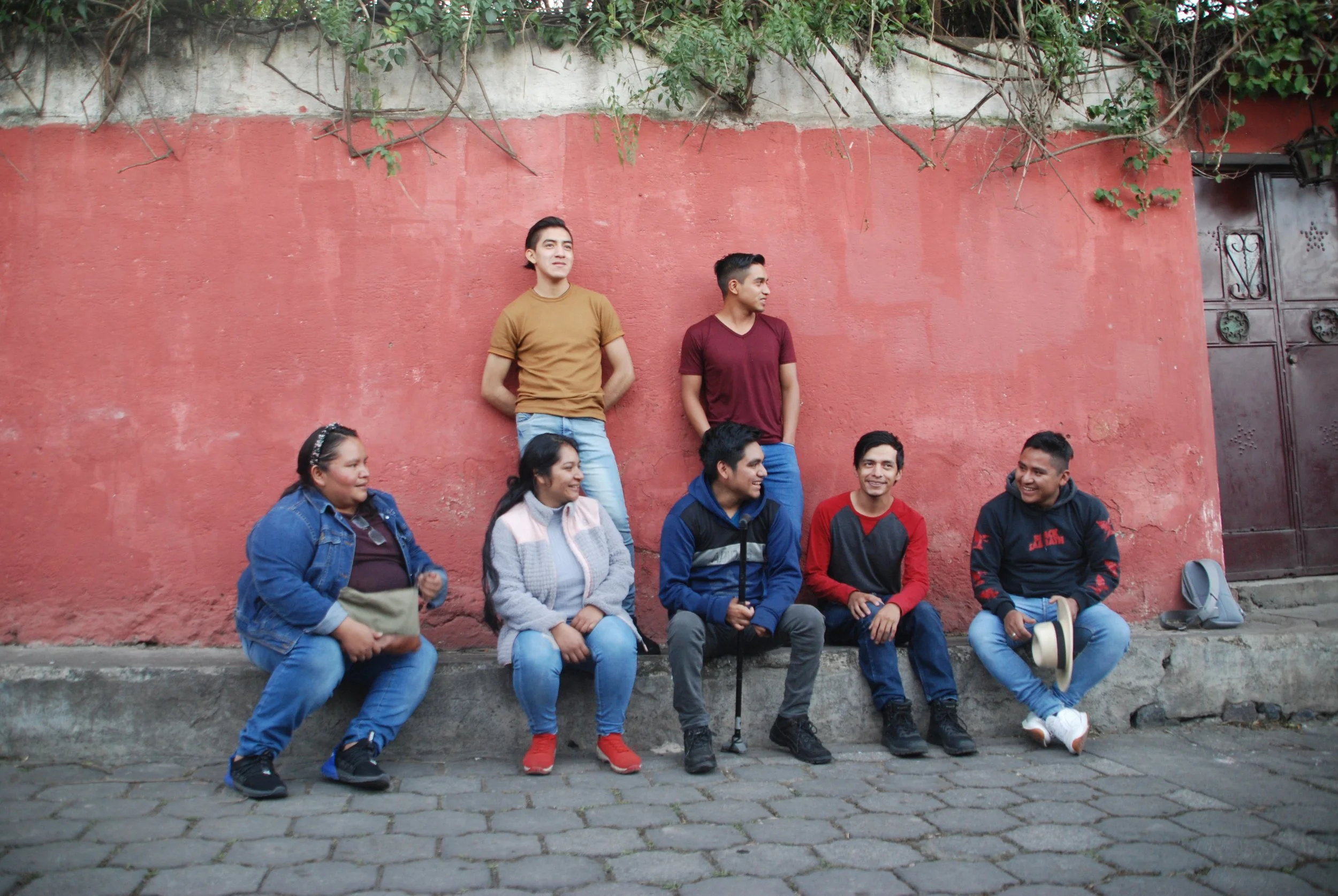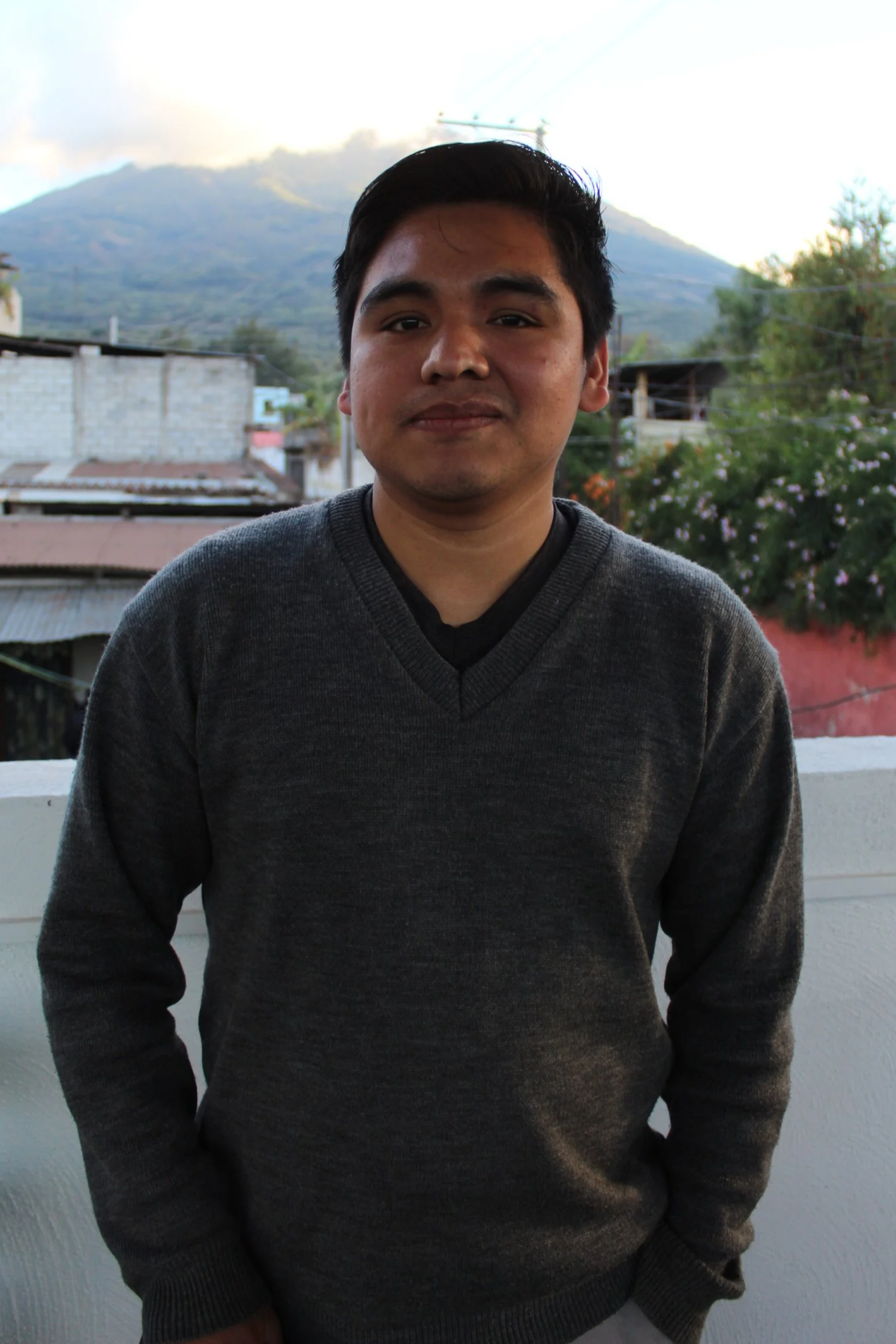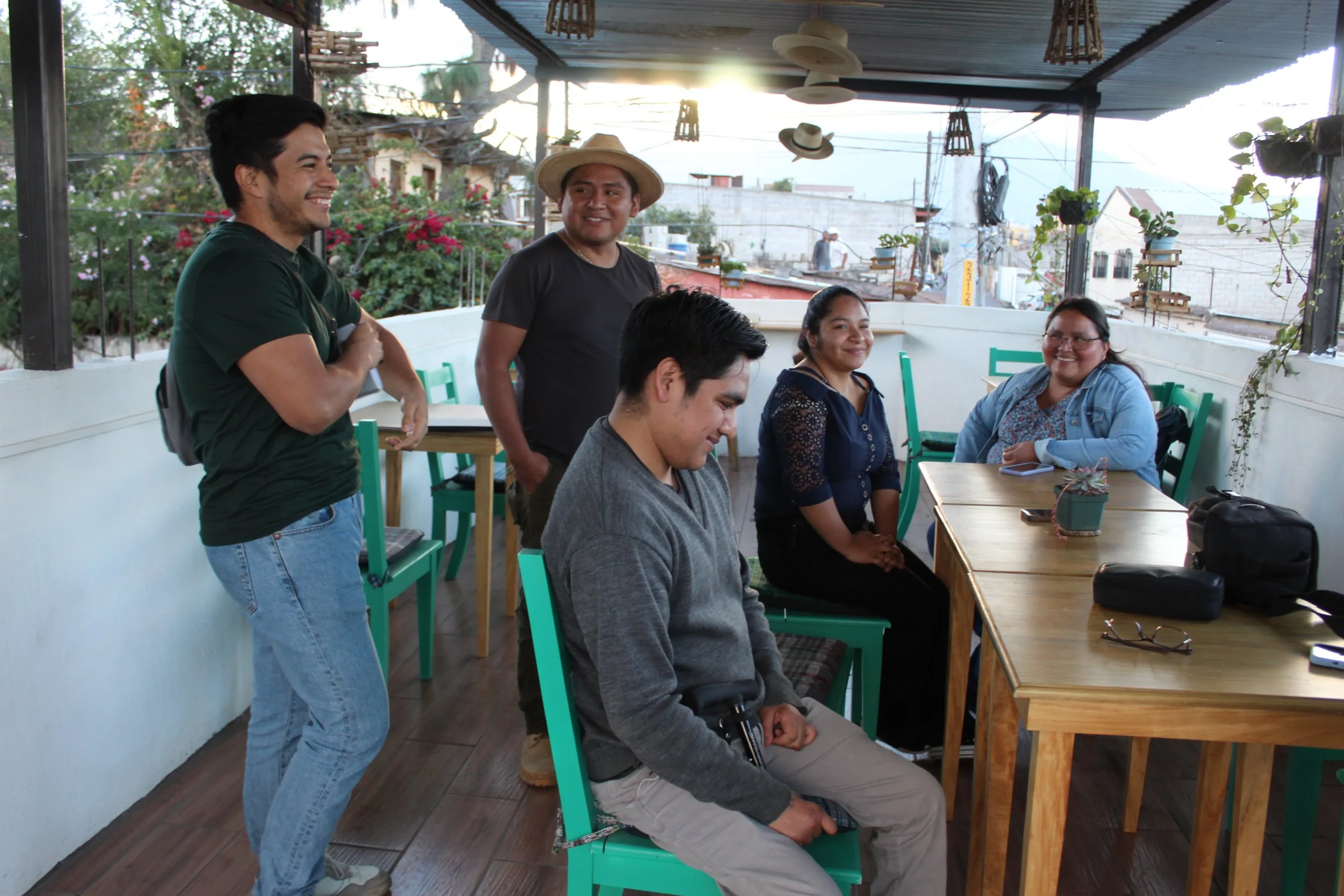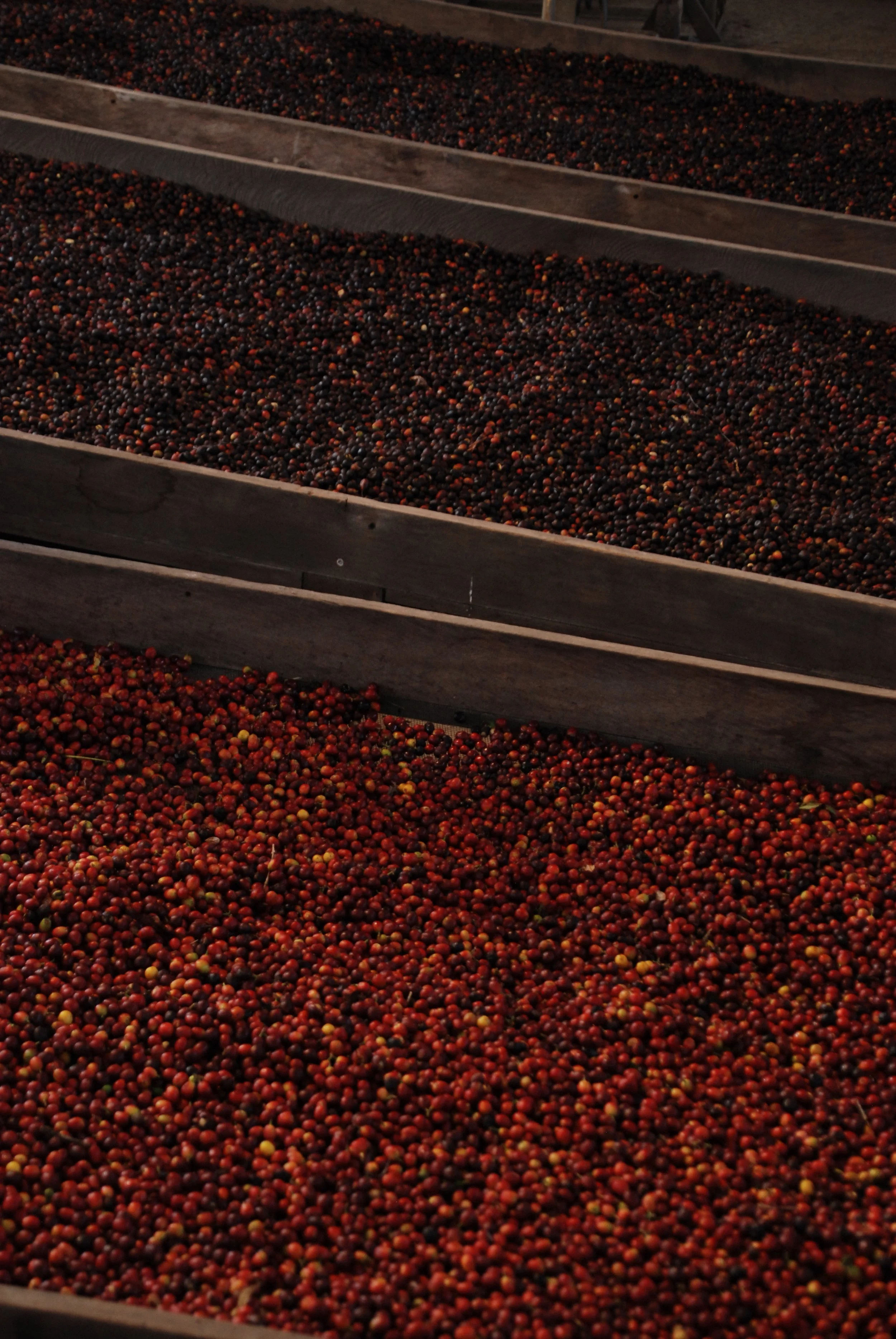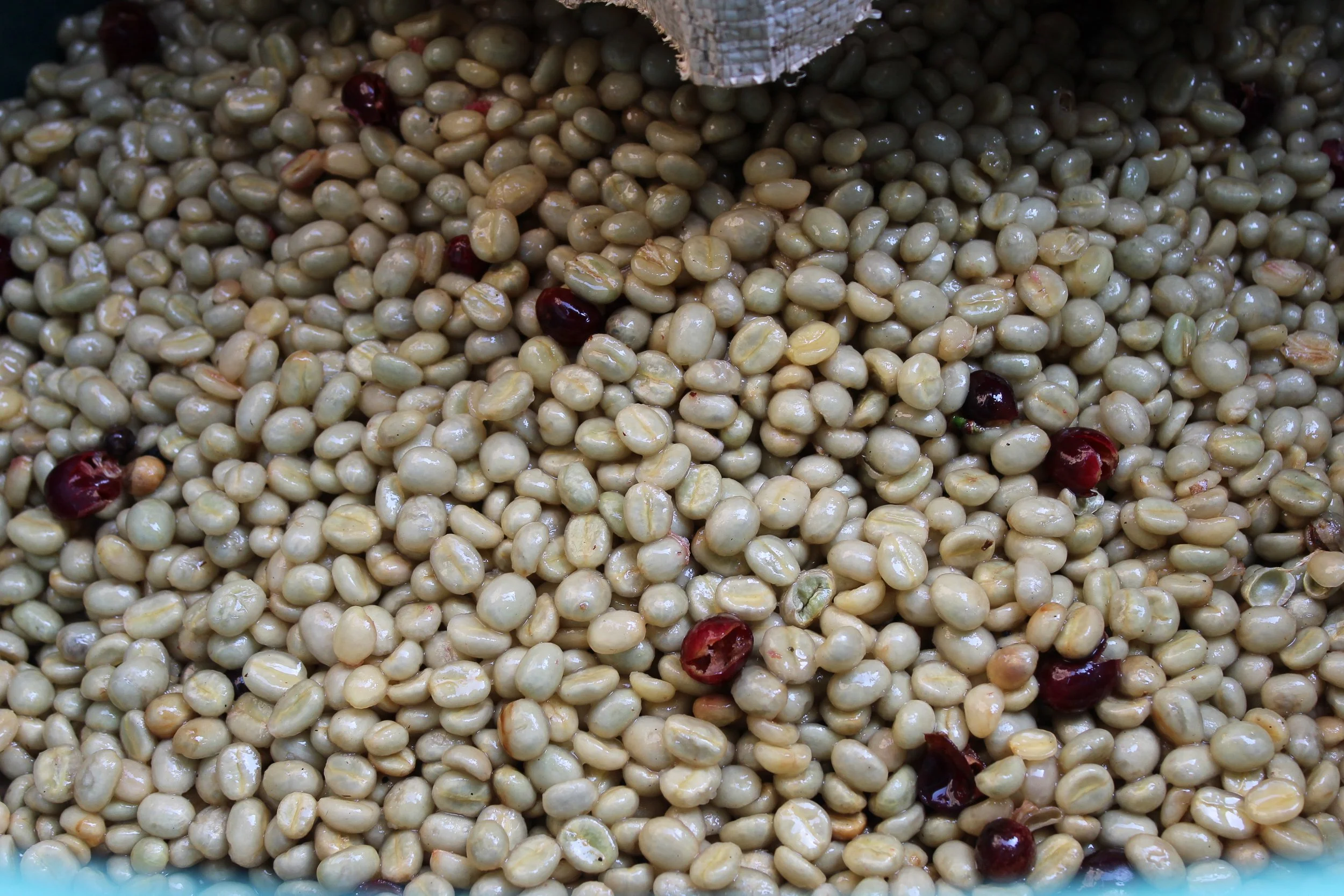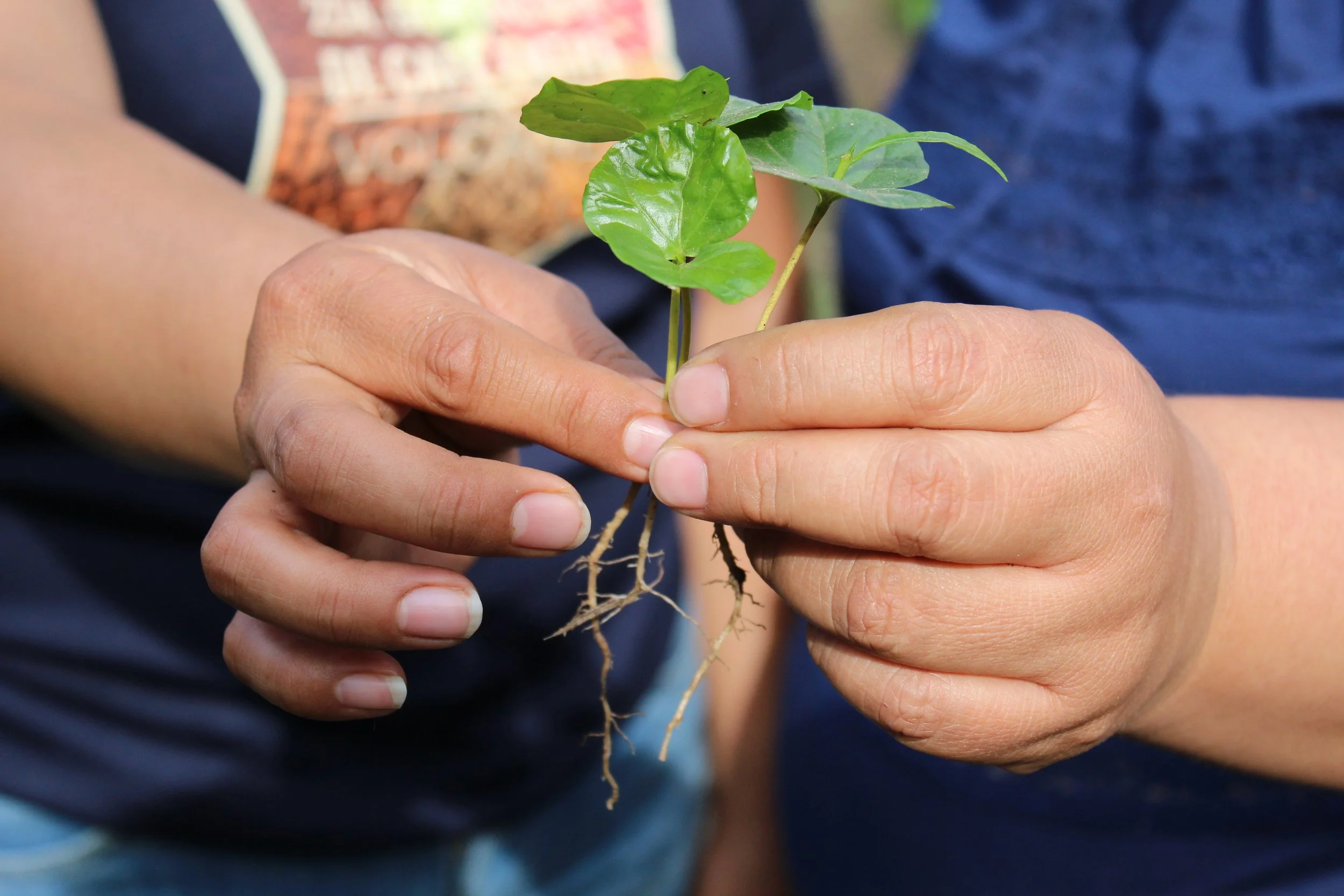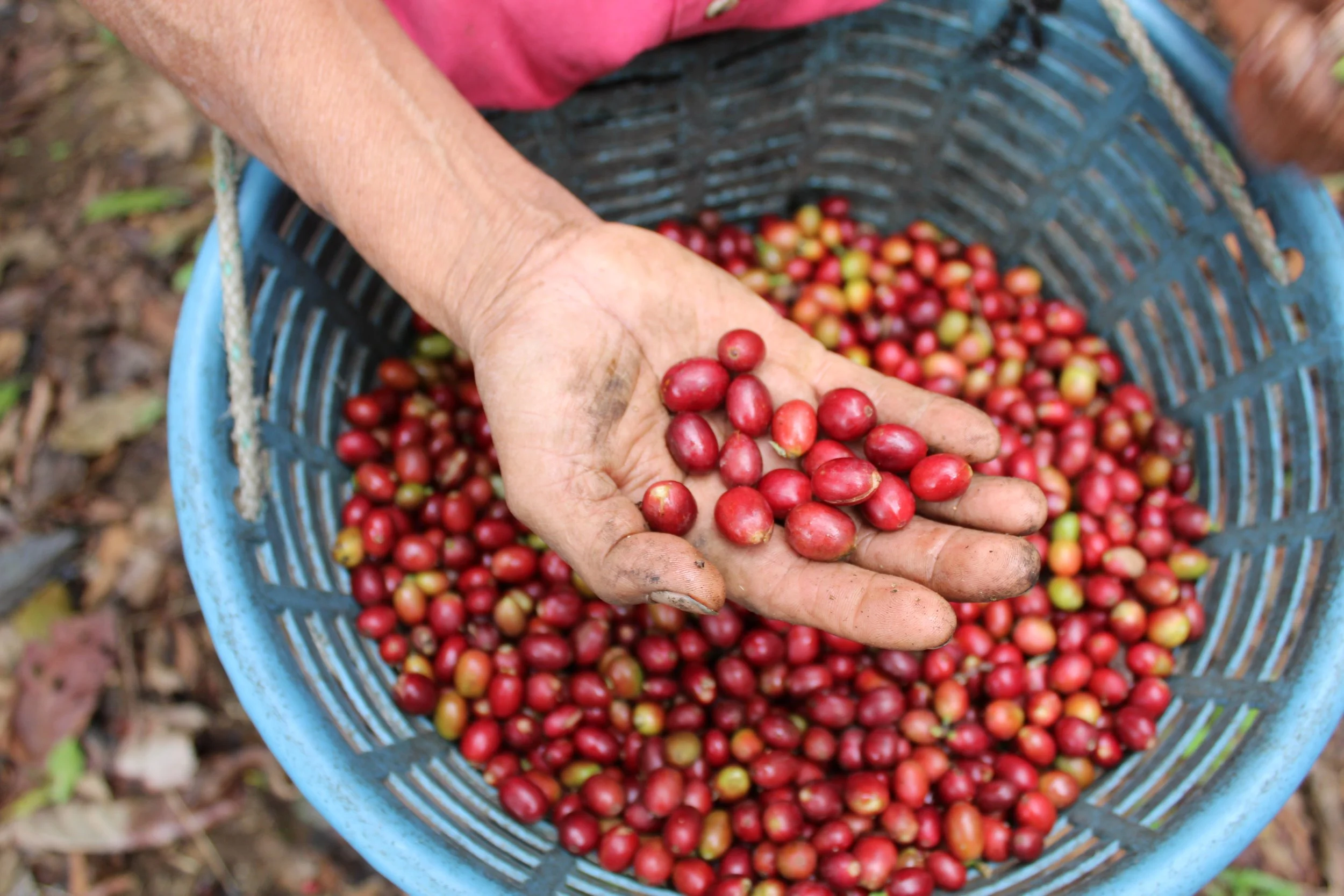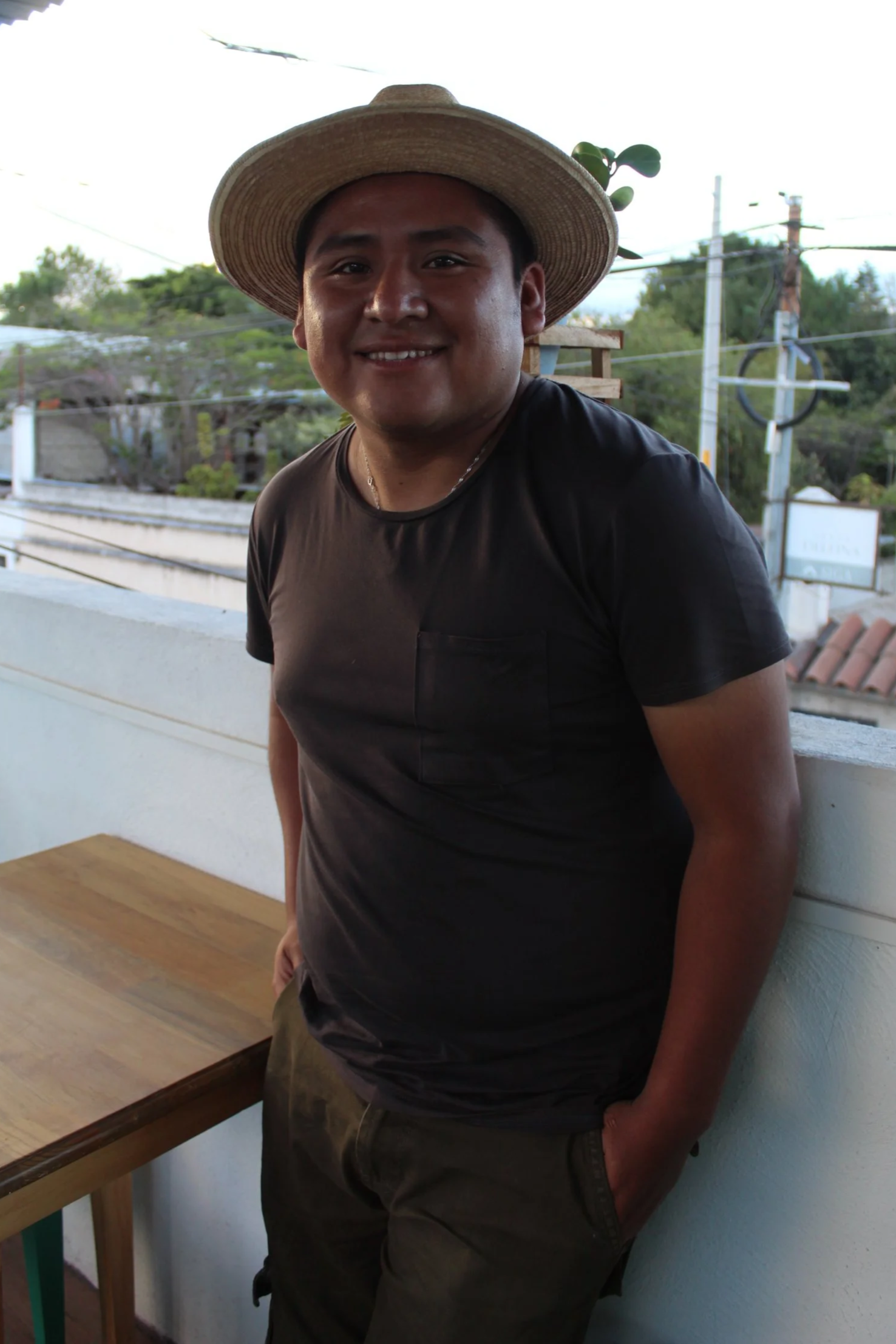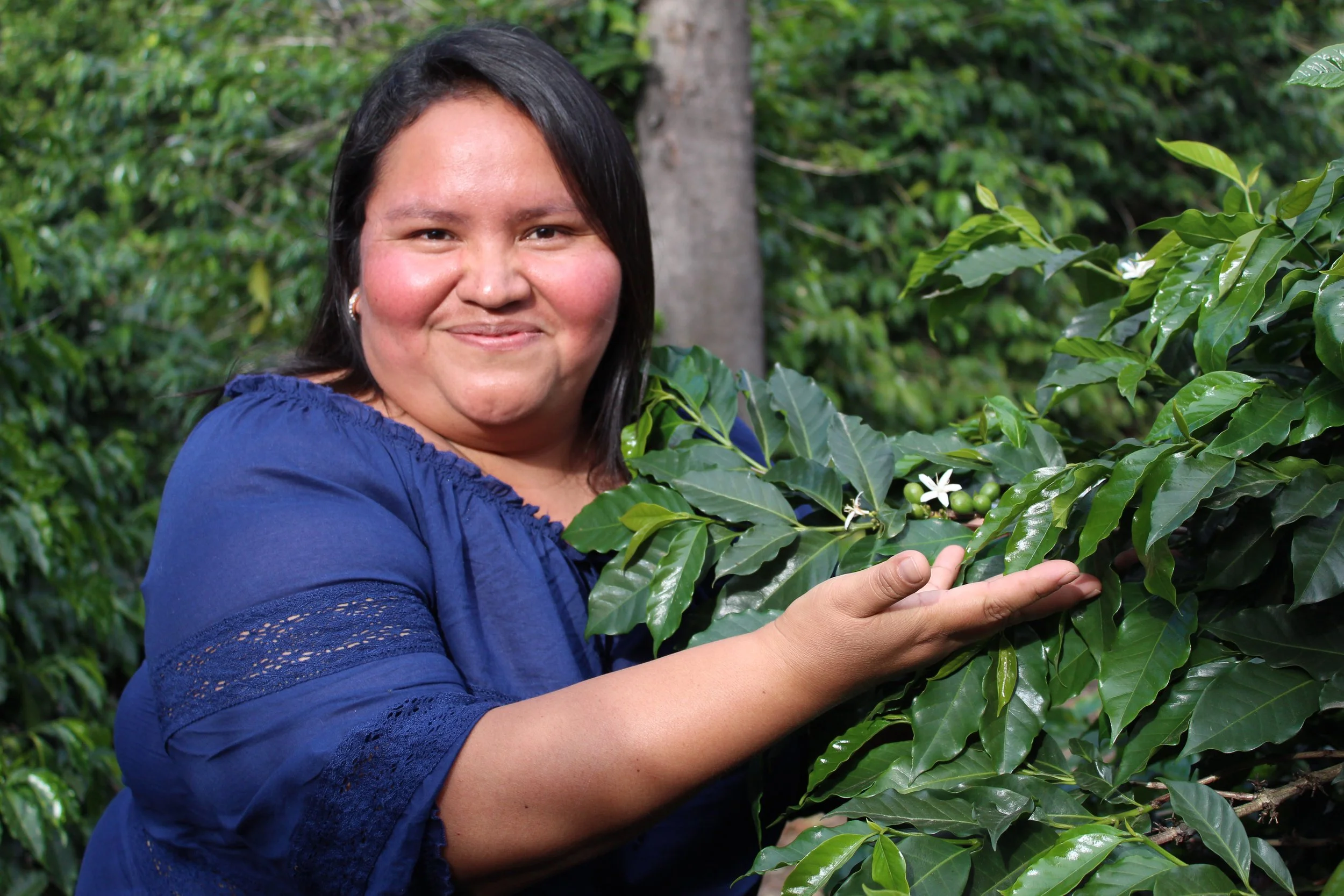The Young Group of Coffee Producers Who Represent What’s Next in Coffee
by Aliisa Oake
A young group of coffee producers located in the Antigua coffee growing region of Guatemala is also the next generation that is showcasing innovation in coffee, while shaping the future of their community. The Young Entrepreneurs of San Miguel Escobar are a rising group of ten young coffee producers who see a deeper meaning of coffee – indicating that coffee is more than a tradition passed down through generations. Having grown up with a first-hand exposure of the obstacles and challenges involved in coffee production, they have proven to be resilient as they seek to find the answer of what’s next in coffee for their community.
“Coffee has now become part of everyone's life, to the point where people from outside [areas] come to learn how it’s made, how we’ve made our coffee [differently] … because there are many coffee processes,” says Álvaro, a member of the Young Entrepreneurs of San Miguel Escobar, “However, Guatemala has a culture that has done the coffee process differently, so that has become a part of [influencing our culture].”
Regardless of their path, this young group of coffee producers have fresh ideas, innovative energy, and curiosity - motivating them to play an active role in envisioning new business ideas in San Miguel Escobar, but also shaping the future of agriculture and coffee in Guatemala.
The Importance of Young Generations for the Future of Agriculture
The future of agriculture, specifically coffee production, constantly faces challenges involving environmental changes, unstable markets, labor shortages, and rising production costs. More specifically, what’s next in coffee – as in the long-term future of the industry – rests heavily in the hands of young coffee producers who must navigate these obstacles and adapt innovatively, while also finding ways to make the industry viable for the next generation.
In Latin America, the average age of a coffee farmer is over 50 years old, while 20% of the region’s total population ranges between the ages 15 and 24 - making up the largest proportion of young people ever in the region’s history. A growing age gap is emerging between older generations of coffee producers and youth groups. In Guatemala, this divide is due to the challenges facing coffee production and the country’s broader agricultural scene. Many young people are leaving rural towns they once called home and migrating to more urban areas in search of better economic opportunities. This leaves fewer hands to carry on Guatemala’s coffee legacy, risking the loss of valuable knowledge, skills, and experience that are only passed down through generations.
“Many young people are dedicating themselves to other career paths,'“ says Álvaro, “They have left agriculture aside along with family traditions and rituals around coffee. That is something I don’t want to do. I want to continue working in coffee because it is something that I like.”
For the future of coffee production to remain stable, young people must find it more appealing and view it as a rewarding career path that offers purpose and opportunity. This is a responsibility that has great potential, but it requires hard work and devotion. To further their careers in coffee, it’s important for young coffee producers to diversify their roles in the supply chain - exploring everything from cultivation and processing, to quality control and export. Youth leadership roles within coffee producing communities are important, as they need to be prepared to take on the next steps in the industry.
Youth Leaders Showcase Innovation in Coffee
Young generations bring creativity to the field and drive innovation, especially due to the fact that they have a greater access to and uses of technology than older generations. For groups like the Young Entrepreneurs of San Miguel Escobar who are becoming more involved in coffee production in Guatemala, when provided with the tools, these young coffee producers are embracing technology, exchanging information, and taking advantage of new innovations in agriculture. They hold power in transforming the image that coffee represents in their community by incorporating innovation in coffee and showcasing the potential of youth leadership roles.
Coffee processing methods in Guatemala have evolved over time, with greater use of mechanization in certain stages, although harvest remains a careful, hand-picked process. An example of this innovation in coffee is the shift from relying solely on manual labor to incorporating specialized tools that improve efficiency and consistency. Advancements to preserve the quality of coffee, but some young coffee producers continue to carry forward knowledge and traditional techniques passed down through generations, keeping in mind that technology doesn’t always hold all the solutions.
“For example, in the past, we had to rely on touch and experience [with coffee processing] to know when the coffee was dry and ready [in the drying stage]. I didn’t need a humidity meter back then,” Álvaro tells us, “just by handling it, I could tell [if it was ready for the next step]. But now, things have changed. We use humidity meters to measure moisture levels … We can also maintain the coffee at consistent temperatures, which improves its quality. The real difference is in the fact that now we have access to these technologies, while we didn’t back then due to lack of opportunity.”
During a discussion about innovation in coffee, we asked Alfonso if they have made any changes to traditional farming practices to keep up with any innovations or changes that have shaped coffee cultivation. As someone who has grown up in the Antigua’s region coffee fields, Alfonso has seen firsthand how shifts in weather patterns, market challenges, and new technologies are influencing the way coffee is grown. His perspective gave us insight on how the wisdom of older generations is tied in with the forward-thinking approaches of young coffee producers.
“We continue to use traditional methods because we don’t want to lose that legacy that our parents left us, because those methods also continue to work for us. If at some point the technology fails, because we know technology isn’t perfect, we also know how our grandparents did it and we continue to do it that way …
We have implemented new things and we have also implemented new processes. Previously, we only knew how to process washed coffees know. Now, we know how to do natural and honey processes, and we’ve also experimented with yeasts, fermentations with yeasts, fermentations at sub-zero temperatures … These fermentation [techniques] also produce different flavors. In the coffee chain, innovating is sometimes necessary. Having a balance between the traditional methods our grandparents taught to us and innovating, is important.”
A Desire for Sustainable Futures
Working towards sustainable futures in coffee brings significant challenges, but without the engagement of young coffee producers, issues could intensify – leading to a threat towards the stability of coffee production and the economic vitality of rural communities in Guatemala. By working with young coffee producers, De La Gente has helped to equip them with tools and skills – fostering greater confidence and encouraging youth leadership. In turn, being able to access new opportunities fuels entrepreneurial spirit, sparks ideas, and fosters a willingness to adapt with the changing world while remaining true to their roots.
The Young Entrepreneurs of San Miguel Escobar are the key to keeping the value of coffee production relevant to their communities, and their continued growth is essential in shaping a stronger, more resilient future for coffee in Guatemala. To help make this possible and further this group of young entrepreneurs, along with our partner roaster Nossa Familia, we created a loan program where cooperative members are able to apply for investment grants. In 2018, we launched a campaign to generate funds specifically to support the Young Entrepreneurs of San Miguel Escobar in their goals as coffee producers and beyond.
These grants have been essential in enabling members to pursue their career paths and secure sustainable livelihoods for the long term. The support they receive helps them refine their skills in coffee cultivation and processing, as well as equipping them with business knowledge and youth leadership skills to thrive in the competitive specialty coffee industry. By investing in their potential, we are empowering them to adapt and seize new opportunities as they build sustainable futures for themselves and their community as they continue their journey towards what’s next in coffee, and beyond.
In furthering their work with coffee production, some of the young members of the Young Entrepreneurs of San Miguel Escobar have been inspired to continue with coffee for different reasons. Alfonso shared that his motivation is related to the tradition that coffee holds for his family and his curiosity to learn about coffee related technologies.
“… Apart from generating a better income for my family, I meet more people, I learn about different processes, new ways, every day you learn something new. The world of coffee is also very changing - we see it now with the prices … but just as prices change, the processes change — there are new technologies, and I really like learning about coffee and how [these technologies can affect] coffee.
So that’s why I decided to continue this legacy, because it’s a legacy that my grandfather left me. My grandfather left it to my father, my father left it to me, and I want to leave it to my sons and daughters so that they can continue with this. Because what happens if in the future we no longer have coffee growers? We will no longer have coffee and that drink that we love so much will no longer exist …”
Karen, another Young Entrepreneur, reflected on how her coffee journey has shaped her perspective over the years. She sees coffee as an evolving opportunity to grow and learn new skills, but also sees coffee as a recognizable art. Each step of the process is a creative expression of a coffee producer’s dedication and it’s a craft that reflects people and countries.
“To be honest, coffee for me at the beginning was an opportunity for new income, based on my parents’ experience and the opportunity to learn something new … the process of letting go of what I always knew and having a chance to grow by myself was an exciting new experience for me.
Now … I can see it as an art, because every final cup of coffee is truly satisfying, and continuing to grow professionally, continuing to grow economically, and being able to continue recognizing ourselves [as achievers]. I speak in general terms because I really see a future in coffee as a group, I really see growth as a group — based on coffee production, based on past experiences, in new opportunities and to be able to continue [in the industry] … In [the near] future, I know that [coffee] will have an impact both for the people and for the community, and in fact, even for the country.”
On The Path Towards What’s Next in Coffee
So what’s next in coffee in this vibrant community of San Miguel Escobar?
The answer lies in the eyes of the Young Entrepreneurs of San Miguel Escobar – a motivated young group of coffee producers who are showing that coffee is more than just a tradition passed down through generations. For them, it’s a starting point for innovation, opportunity, and growth. Whether it’s having deep connections to their family’s legacy, or having pride in producing high-quality coffee, they see more opportunities within the specialty coffee industry, Guatemala’s renowned coffee landscape, and the close-knit community of their rural town.
These young leaders are embracing their roots while reimaging the future, blending deep respect for the generations before them with a commitment to preserving and uplifting the traditions passed down by their ancestors. Leveraging their everlasting, rich knowledge of coffee, they are introducing new techniques, adopting sustainable practices, and applying modern strategies that position their community within the competitive landscape of the specialty coffee industry. Through perseverance, adaptability, and resilience, they are ensuring coffee remains relevant and thrives in the future. In doing so, they are on an inspiring path of economic empowerment, environmental stewardship, and meaningful global connection.
Continued support, education, and access to resources are vital in ensuring the success of the next generation of coffee growers, as well as inspiring more young talent to remain in the industry. You can play a part in this future. By purchasing roasted coffee from the Young Entrepreneurs of San Miguel Escobar, you are helping to equip this young group with the tools, training, and opportunities they need to strengthen coffee production, improve quality, and pursue their career paths within coffee and beyond.
To hear more about personal stories from some members of the Young Entrepreneurs of San Miguel Escobar, read some of our older blog posts!
Eduardo → Eduardo’s Drive to Expand His Coffee Production
Guillermo → Guillermo Combats the Effects of Climate Change in His Fields
Alfonso → A Glimpse Into the Young Entrepreneurs of San Miguel Escobar | Q&A with Alfonso
Claudia & Luis → Siblings Carry on Tradition While Envisioning Change | Q&A with Claudia and Luis


